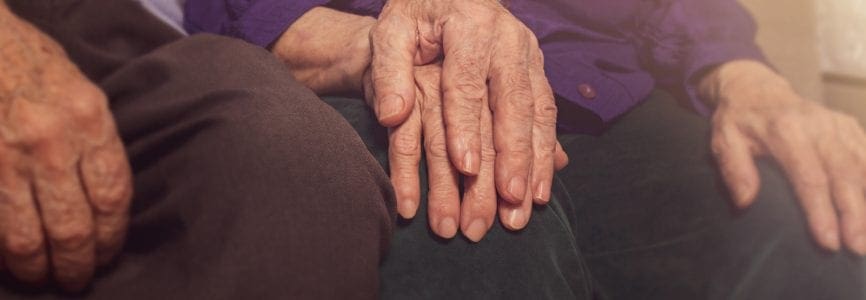Bioethics Forum Essay
Too Taboo to Contemplate? Refusing Covid Vaccination for Some People with Dementia
As we continue to be riveted on the coronavirus pandemic, the fate of people in nursing homes has been of special concern. Although the reporting is somewhat unreliable, we know that more than 174,000 nursing home residents and staff have died from the virus, a number many consider to be substantially undercounted. In February, on average, there were 1.02 deaths from Covid-19 for every 100 nursing home residents, resulting from an astonishing 3.5 cases per 100 residents.
The vulnerability of nursing home residents is not surprising. They are usually elderly and often have underlying conditions associated with a higher risk of death should they contract Covid-19. However, it turns out that regardless of age and other conditions, having dementia is an independent risk factor. A recent study from Careport Health found that “in the nursing home population, dementia appears to be associated with a 1.7x risk of death, even after adjusting for age.”
This is important information for health care proxies to have when they decide whether vaccination is appropriate for their loved ones. The same factors come into play when deciding whether to agree to routine vaccinations for flu and pneumonia.
For people with dementia who wrote comprehensive advance directives while competent, these decisions should be clear, although emotionally tough for health care proxies. If a person indicated that, if she develops dementia and is living in a nursing home, she would not want to prolong her life, and that, should she get pneumonia, she would want comfort care only, refusing inoculations for pneumonia, Covid-19, and other respiratory diseases is a logical corollary.
But what about proxy decision-makers for the many elderly people who have not expressed their wishes in advance?
The results of some studies can flesh out this picture. A 1997 study of over 9,000 seriously ill people discovered that 26% were “very unwilling” to live in a nursing home, and 30% would “rather die.” A 2016 study of seriously ill but cognitively competent people found that a majority believed that either incontinence or “being confused all the time” were states equal to or worse than death. A 2019 project by Emily Largent and colleagues found that about a fifth of participants who discovered that they had elevated amyloid-B, and thus a higher risk of getting Alzheimer’s disease, expressed interest in physician-assisted death.
In other words, there are a whole lot of us who think that, if we had dementia and were unable to live independently, we would prefer death. The idea that someone suffering from dementia and confined to a nursing home might actually welcome death is apparently so taboo that it cannot be openly contemplated. William Osler, often called the father of modern medicine, called pneumonia “the friend of the aged,” often misquoted as “the old man’s friend.” Since physician-assisted death is not available to people with dementia, it seems that “the old man’s friend” could be a welcome visitor. Could the novel coronavirus be today’s old man’s friend?
I understand that, because vaccines protect others as well as ourselves, this is a complicated question. I am one who would rather die than live in a nursing home, and I would certainly rather die than live with dementia. So, if I were in a nursing home in the earliest stage of dementia, while still capable of making decisions, I would definitely refuse the vaccine and embrace deliverance via Covid-19 with open arms. That does, of course, put others at risk, including underpaid, dedicated health care workers. But then the best use of these precious vaccine doses is to put them in the arms of the health care workers, not in the arms of residents who may not want them.
In short, proxy decision-makers should not assume that the Covid-19 vaccine is automatically right for a person with dementia, whether or not that person is in a nursing home. They should first ask themselves, “Is this the way Mom or Dad wanted to live?” and act accordingly.
Dena S. Davis, JD, PhD, a Hastings Center Fellow, is the endowed presidential chair in health and a professor of bioethics and religion studies at Lehigh University. Her blog is Bioethics and Other Stuff.












